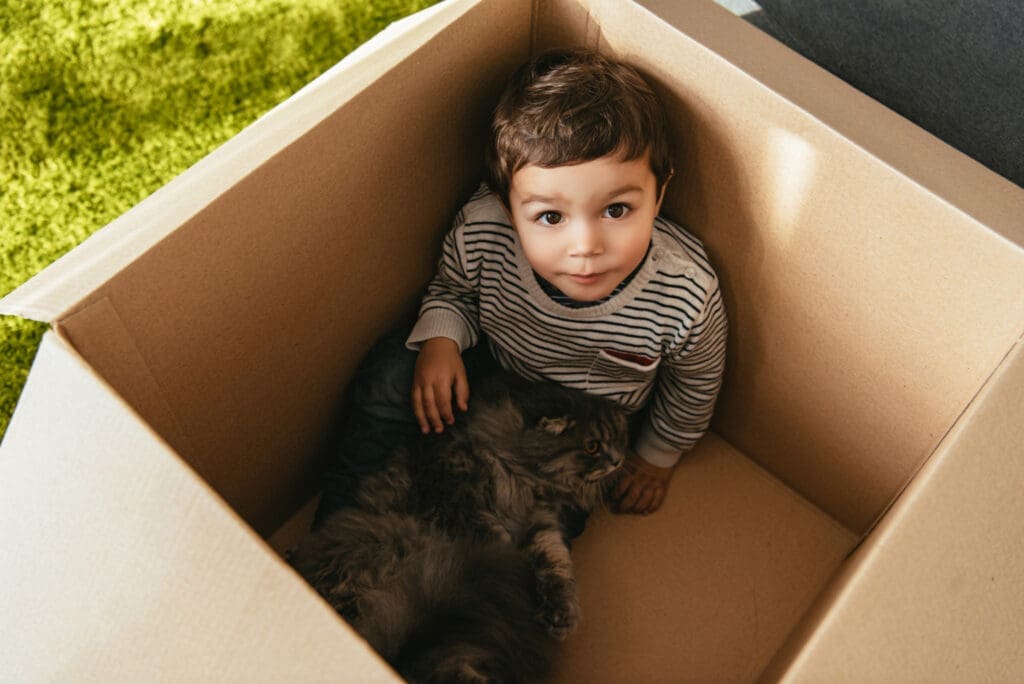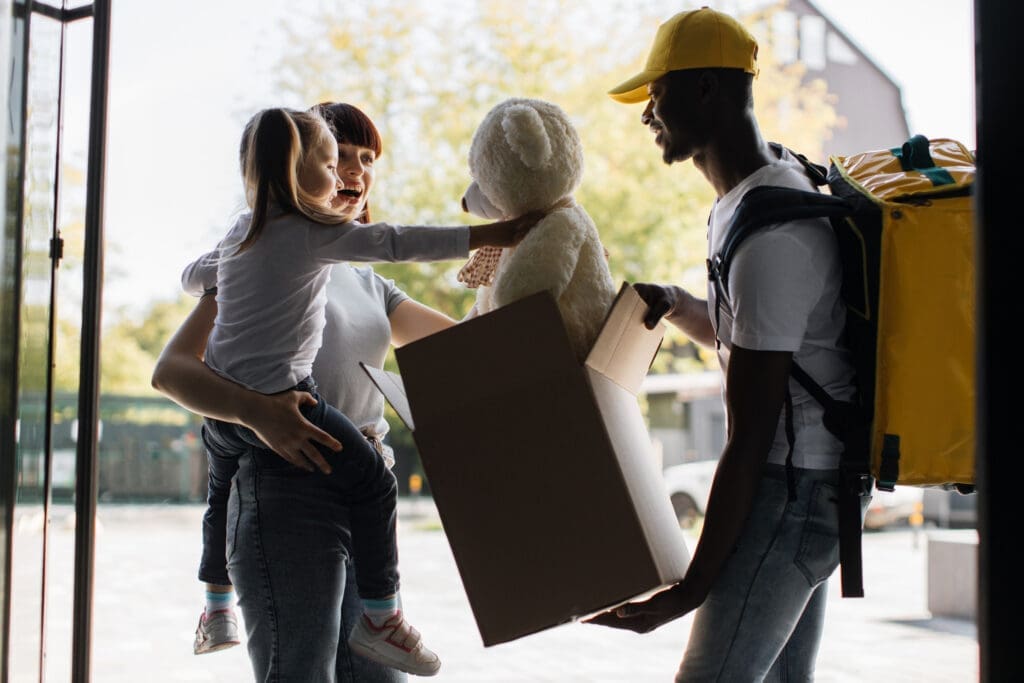How Does Moving House Affect Children?

Moving can be stressful yet exciting for adults craving a change of scenery. Parents with youngsters may not immediately think about how moving affects a child, but taking the time to understand how toddlers adapt to this change is crucial. This begs the question: How does moving house affect a toddler?
In this guide, we’ll explain the impact of moving on toddlers and tips for helping a child cope with moving. Discover the positive effects of moving as a child and the potential downsides parents should be aware of. Use this information to confidently relocate your child so they can adapt to their new home quickly.
Moving House With a 2-Year-Old vs. Moving House With a 3-Year-Old: Common Toddler Behavior

If you change homes with an infant in tow, they shouldn’t face any challenges with their development and should adapt to their new environment rather quickly. As children grow, their social and emotional development takes center stage. Moving house with a 2-year-old means your child may experience some stress that comes with changing their surroundings.
Some of the emotional effects of relocating on a toddler include:
- Throwing temper tantrums
- Becoming clingy and yearning for attention
- Sucking their thumbs for comfort
Is moving house with a 3-year-old any different? An older toddler may exhibit these same behaviors but can also revert to behaviors they’ve outgrown. Potty-trained children might begin wetting themselves or talking in a babbling language out of distress.
While a toddler’s response to house moving might initially seem negative, it’s not permanent. Parents must remember that moving to a new home, even if it’s down the street from their current house, can be difficult for young children who are still learning about the world.


Adapting to a New Home: Toddler Perspective
How does moving house affect a toddler on a developmental level? Whether you reside in a quiet suburban area or a big city, your kids must adjust to their new surroundings. They need time to get comfortable and will rely on you to guide them through this life change.
Does the moving process stress you out and have less time to spend with your young one? Toddlers detect when parents are in distress and will act out accordingly. If you want your child to adjust to the move quickly, it’s essential to manage your emotions and keep a similar routine.
When moving house, toddler behaviour will turn negative in the face of too much change. Keep various aspects of their life the same in both locations, including:
- Bedtime
- Mealtimes
- Schooling or daycare
- Personal time with family
Coping With Change: Moving and Toddlers
The best way to help toddlers adjust to their new surroundings is by sticking to what they already know. You’ll live in a different home, but as you settle into your regular routine, your child will slowly get used to their environment and stop exhibiting poor behavior.
If you’re planning a long-distance or international move, it can be more challenging for you and your young one to adjust. If you’re staying close to your current neighborhood, consider bringing your child to the same park you often visit. Providing as much normalcy as possible is critical for helping children cope with a sudden change like moving.


How Moving Impacts Older Children
The information above answers the question, “How does moving house affect a toddler?” Let’s now dive into the ways relocating impacts school-age children and teenagers.
No doubt moving to a new home has its challenges for kids, but is it harmful for older children to change houses? One study suggests that moving as a young child contributes to mental health issues later in adolescence, regardless of demographic.
Moving as a school-age child comes with many challenges. Kids become accustomed to their houses and rooms. They might have trouble sleeping in a new and strange environment or have little interest in some activities they once loved.
Relocating is especially hard if your child must change schools and move far away from friends. Their social development can suffer, and they may become shy around others out of a reluctance to befriend their new peers. These issues are apparent with teenagers as well, who may begin to experience concerning behaviors like the following:
- Depression
- Disordered eating
- Lack of concentration in school


Helping a Child Cope With Moving: Tips for Parents
Understanding how house moves affect toddlers and older children is key for any parent looking to relocate their family. You’ll need to take proactive measures to help your child brace for the changes. Doing so can minimize negative behaviors and make this transition period much smoother.
How does moving house affect a toddler or young child, and what can you do to help them cope? Teach your child that this is a positive adjustment and that they have nothing to fear. You can achieve this by reading bedtime stories featuring characters going through the same thing, planning fun outings in your new neighbourhood, and getting acquainted with neighbours who also have children of a similar age.
Pre-adolescents and teenagers tend to have a harder time coping. Therefore, parents must be extra cautious in approaching such family situations. Have open and honest conversations with your child and, if possible, let them experience your new home before moving day so they can get excited about their new room or nearby attractions. Remember that this is not an easy transition for kids, so the best thing you can do is to remain patient, calm, and loving throughout the process.
Conclusion
After going through this guide, you probably don’t have a question:, “How does moving house affect a toddler?” anymore. Use the tips above to prepare your children for the adjustment, and you can quickly settle into a routine in your new home. Call the moving experts at AMJ Campbell at (888) AMJ-MOVE (265-6683) to plan your family’s upcoming relocation.
